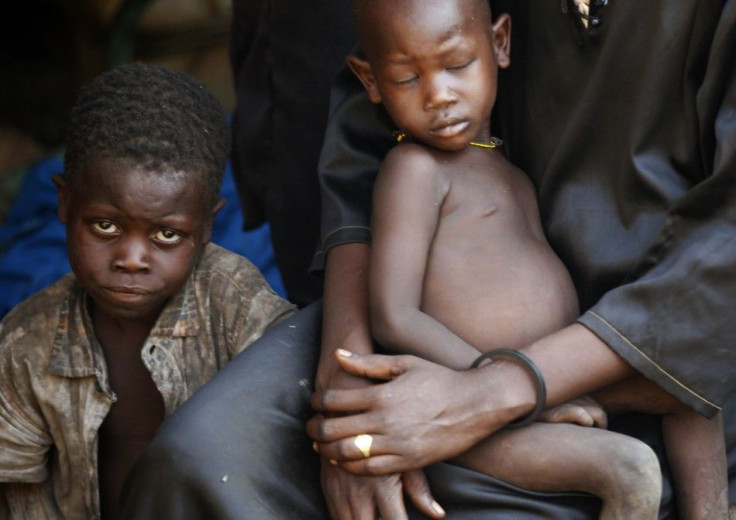Half Of South Sudan Facing Hunger Crisis: UN

More than 4.5 million people in South Sudan -- about half of the country's population -- face hunger and food shortages as clashes with Sudan along the border continue.
According to a report from the United Nations Office for the Coordination of Humanitarian Affairs, or OCHA, food shortfalls worsened in the first four months of this year, raising fears that the South Sudanese are sliding into destitution. The three main factors for the crisis are the violence between the north and south, ethnic clashes in South Sudan's Jonglei state and the closure of oil production.
Oil accounts for most of South Sudan's revenue, but an argument over transfer fees with Sudan, which still operates the pipelines, has halted production.
South Sudan's currency -- which was created alongside the country's split from Sudan in July -- also suffered from the oil shutdown, and massive inflation has caused the price of basic food commodities to rise by 300 percent in some areas, according to South Africa's Times Live.
Despite efforts by OCHA and other international aid agencies, the situation is expected to get worse before it gets better. Seasonal rains are coming to both the north and south, which Refugees International warns will exacerbate already dire conditions in refugee camps though the spread of disease, while making movement difficult for displaced persons and humanitarian aid shipments.
The coming rains could make life for refugees unbearable, Johnson Byamukama of Oxfam in South Sudan told the South African Press Association.
And as long as oil production is still shut off, the number of people who are going to require emergency assistance is going to be rising, South Sudan's U.N. Humanitarian Coordinator Lise Grande stated.
But the United Nations and other organizations won't be able to tend to those in need on their own. The U.N. faces a funding gap of $500 million in humanitarian aid and the World Food Programme expects food shortages to rise as more and more refugees from Sudan move south, many of them to escape violence and hunger in the north, according to the South Sudan News Agency.
While South Sudan says it is ready to resume talks with Khartoum, which the U.N. believes is one of the first steps for stopping the looming crisis, Juba has also said that it will acquire anti-aircraft missiles and bolster its military, which is far from signaling an end to the conflict.
We're on the path from crisis to catastrophe, Byamukama added. The world needs to wake up to the true cost of conflict for people who have already suffered so many years of war.
© Copyright IBTimes 2024. All rights reserved.





















